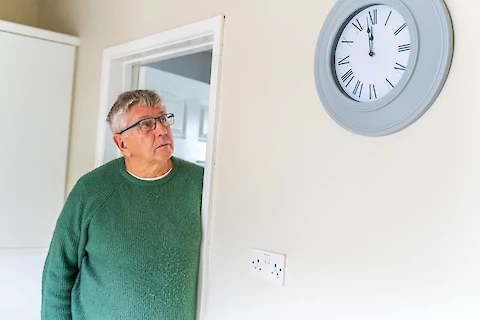
Are you caring for a senior loved one with dementia? It can be a challenging journey, especially when they begin to lose track of time and days. Maintaining a sense of time and routine can help their well-being. As their caregiver, you play a pivotal role in creating a supportive environment. Explore some ways you can help your senior loved one with dementia keep track of the time and day.
1. Structuring Settings for Time Awareness
One key factor in helping seniors with dementia stay oriented on time is ensuring that their living space is properly structured. A well-organized environment can provide essential cues and reminders about the time of day and what activities are scheduled.
2. Bright Lights During the Day
Natural light plays a significant role in helping individuals maintain a sense of time during the day. Make sure to open curtains and blinds, allowing sunlight to fill your loved one's living space. This not only helps them stay oriented but can also improve their mood and overall well-being.
3. Visible Clocks
Place large, easy-to-read clocks in multiple rooms to provide constant time reminders for seniors with dementia. Having both analog and digital displays can help accommodate different preferences and cognitive abilities, ensuring your loved one can easily identify the time whenever needed.
4. Clear Schedules and Calendars
Using a large, easy-to-read calendar can offer seniors with dementia a valuable tool for maintaining time awareness. Position the calendar in a central, highly visible location – such as the kitchen or living room – where it can be easily accessed and updated. As a caregiver, devote time each day to help your loved one update the calendar, emphasizing any important upcoming events or appointments.
5. Consistent Daily Routines
Establishing and maintaining a daily routine can greatly benefit seniors with dementia, allowing them to anticipate and prepare for daily activities. Examples of routines to consider include consistent meal times, medication times, and bedtime. Adhering to a schedule can help seniors stay oriented on time and provide a sense of stability and comfort.
Balancing Time Awareness With Flexibility
While time awareness is important for seniors with dementia, you must balance promoting accuracy and avoiding unnecessary stress.
Why Stringently Correcting Times and Dates May Not Be a Best Practice
Constantly correcting seniors with dementia about times or dates may cause them to feel stressed and confused, potentially exacerbating their symptoms. As a caregiver, you must prioritize your loved one's emotional well-being and comfort over strict time accuracy.
Softer Environmental Cues for Time Awareness
Instead of relying solely on verbal corrections, consider using other sensory cues to help signal transitions between different times of the day. For example, you might play soothing music during bedtime or introduce calming scents during relaxation periods. These cues can provide gentle reminders for seniors with dementia without causing stress or confusion.
Senior Helpers Glendale Helps Seniors With Dementia and Their Families
Helping seniors with dementia maintain a sense of time and routine is an important aspect of their care. By structuring their environment with time awareness in mind and balancing accuracy with flexibility, you can create a supportive and calming atmosphere for your loved one. Remember, their emotional well-being should always be a top priority.
If you or a loved one in Glendale, Peoria, Phoenix, Luke Air Force Base, or Tolleson need assistance with senior dementia care, Senior Helpers Glendale provides compassionate and professional support. Our team is dedicated to providing the best care possible, ensuring that seniors with dementia can live their lives with dignity and comfort. Contact us today to learn more.